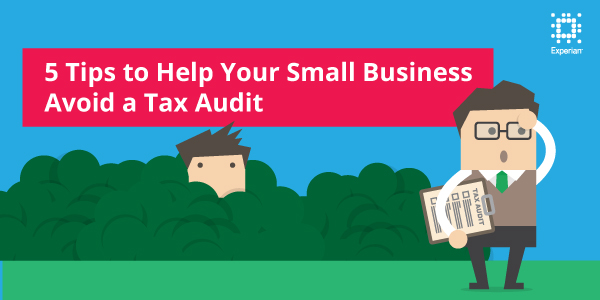
The IRS audits a small percentage of business tax returns each year. Tax audits take up time and resources, and most small business owners would prefer to spend their time making money. As a result of exhaustive research, we’ve identified these five tips to help you minimize the risk of a tax audit.
1. File Returns on Time
It’s true that the IRS has rules governing what happens when you file a return late, and while the initial penalty might not seem that bad, late filing is a trigger. If you routinely file late returns, you’re going to increase the chance you’ll be audited. To avoid temptation, prepare accurate records in a timely manner. If you don’t have the time or skills background to do the accounting yourself, it’s worth hiring someone to do it for you. The best way to ensure that you file on time is to make preparing returns extremely quick and easy to do.
2. Be Cautious About Rounding
It’s perfectly acceptable to round up to the nearest whole dollar, but that’s as far as you can go. If you paid yourself a salary of $60,005.32, make sure to report the number as $60,005. If you round to an even $60,000, the IRS may be knocking on your door.
3. Manage Independent Contractors Carefully
The IRS is very clear and detailed in their definition of when a worker is considered to be an independent contractor. If you have independent contractors in relation to employees, that could trigger an audit. If you aren’t sure of a worker’s status, get advice from a tax attorney or CPA. You can also file a Form SS-8 with the IRS to get an official ruling.
4. Be Prepared When Claiming Vehicles for Business Use
If you claim 100 percent business use of a vehicle, and you don’t have another vehicle for personal use, you’ll need very detailed records. Track the mileage and purpose for each trip that will document the business purpose of all the miles driven each year.
5. Don’t Pay Unreasonably High Salaries
Some individuals have been known to pay shareholders who work in the business a very high salary specifically to reduce the company’s tax burden. Avoid any potential issues by ensuring that the salaries paid to shareholders are in line with industry standards.
Even if you’re doing everything right, it’s always possible that you’ll be audited someday. Develop a mindset that anticipates the worst. Be rigorous in keeping detailed documentation as if you were going to be audited on an annual basis. You’ll be glad you did if the IRS does call.
Sources
